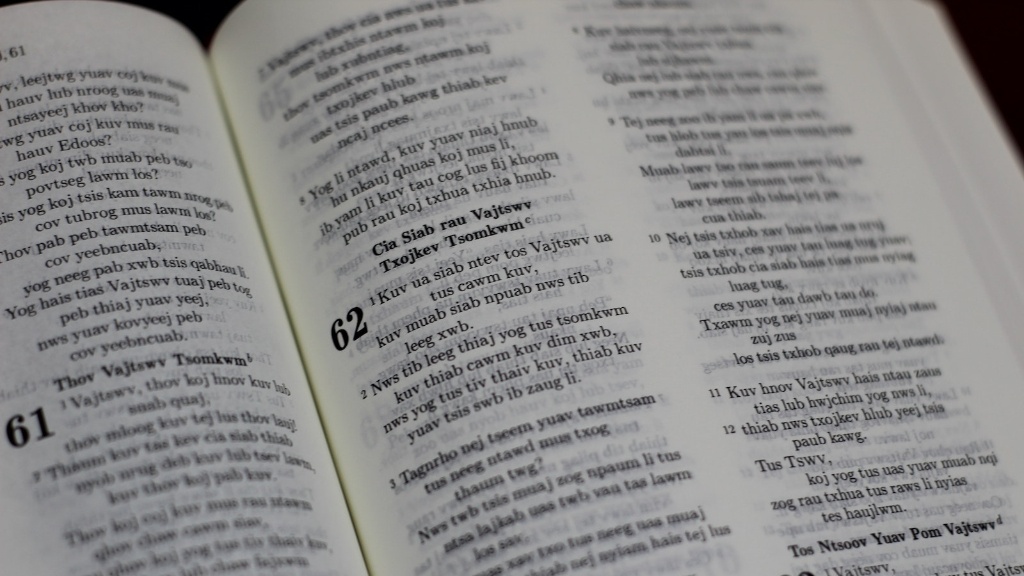Background
When it comes to the Bible’s stance on abortion, it is hard to define a single, unified view. Different Christian denominations disagree on the matter, presenting a range of views regarding when abortion is permissible and when it is not. Therefore, it is important to ask—what does the Bible say on abortion?
Abortion has been a divisive issue since ancient times and the biblical texts discussing it are complex. The Bible does not explicitly condone or condemn abortion and instead it offers a range of advice and perspectives which can be interpreted in diverse ways. Although the topic of abortion might not be the most direct reference in the Bible, it is definitely an ethical topic that has been discussed by theologians for thousands of years.
God’s sovereignty
At the core of the debate about abortion is the idea of God’s sovereignty. Many Christians believe that as it says in the Bible, God is the Creator and Sustainer of life. As such, the view that God has a particular will for the development of life is held by those who are against abortion. They argue that; since the Bible upholds the sanctity of life, it is wrong for anyone to interfere with the divine plan of God and terminate life on purpose. That being said, there are exceptions such as incest, rape, and certain medical conditions, in which abortion might be permissible as discussed by some denominations.
Social justice
The Bible has also been used to support the argument that all lives have equal worth and value—rendering the value of unborn children the same as any other person. At the same time, advocates of the social justice view in regard to abortion believe that the Bible speaks out against abuses of power, exploitation, and all forms of injustice, especially against women and the vulnerable, for whom abortion might be the only option in some cases.
Analysis
While there is undoubtedly disagreement between denominations, it is clear that the Bible places a strong emphasis on the sanctity of life and the commandment to ‘love thy neighbour as thyself’. This suggests that any decision regarding abortion should be made with respect and without exploiting anyone facing a difficult decision.
Furthermore, the Bible presents the idea that no one should be able to force their beliefs about abortion on others, as everyone has the right to decide for themselves. Finally, there is an inherent commandment to act in solidarity with those who are suffering and marginalized— something which also applies to cases of abortion.
The important role of science and medicine
Science and medicine has a role to play in the abortion debate and is often referred to in theological arguments. Some scientific studies have found that unborn fetuses can sense pain from around 20 weeks into the pregnancy. This aspect of the debate has caused some religious believers to reconsider their stance on abortion.
Other research has revealed that abortion can be necessary in some cases in order to prevent further health complications for the mother and fetus. Similarly, the therapeutic abortion in cases of rape, incest, and fetal abnormalities is mentioned in many biblical verses, indicating the possibility of specific exceptions to the general rule.
The role of conscience
Finally, it is important to acknowledge and consider that individuals have fundamentally different views on abortion. The Bible emphasizes the importance of a person’s conscience in assessing their decisions and actions, meaning that it is not up to anyone else to judge another’s individual decision on the abortion issue.
Ultimately, it is difficult to make a general statement about abortion and its ethical implications, as the Bible offers diverse perspectives which may be interpreted in different ways. What is evident, however, is the importance of approaches that prioritize discernment, justice, and compassion—independently from personal convictions.
Women’s rights and autonomy
The debate about abortion must also take into account the autonomy of women. The concept of bodily autonomy is based on the idea that everyone has the right to determine what happens to their own body. Moreover, in a patriarchal world, the voices of women are too often unacknowledged; and this is particularly significant in the context of abortion, as women are the ones who make the decision.
The Bible calls for respect and justice for all people, and this applies to women in regards to their decisions over their own bodies. This becomes even more pertinent in cases where abortion might be the only option. Thus, the Bible encourages us to recognise the autonomy and dignity of the woman and to trust her judgement when it comes to making an informed decision.
Negative psychological implications
In some cases, an abortion can have psychological and emotional impacts on a woman. The Bible speaks of the value of self-care, and this is an important consideration when making the decision to go ahead with an abortion or not. It is crucial to understand that, if a woman is more likely to experience more damage to her mental health in the aftermath of the procedure, then she may need to weigh the potential costs of the abortion with her circumstances.
The Bible prioritises merciful love and compassion for one’s neighbour, and this concept is pertinent in the debate about abortion regardless of everyone’s particular beliefs. It is evident that the Bible is an ambiguous source when it comes to counselling on the morality of abortion, but it is also evident that individuals have to make personal decisions based on their own conscience.
Informed decision making
In any instance concerning the debate of abortion, it must be emphasised that any decision made should be grounded in research and factual information. The importance of making an informed decision cannot be overlooked. Furthermore, the decision made should not come as a consequence of pressure or coercion, but rather out of a well-considered judgement.
The Bible upholds the right and freedom of each individual to make decisions that they consider most fitting based on the available information. In the case of abortion, this means that every woman has the right to make her own decision without having to face external judgement or manipulation.
Spiritual guidance
For those who want spiritual guidance when it comes to the debate about abortion, the Bible provides an open platform for them to explore their faith and seek the counsel of their spiritual community. As discussed, individuals have the freedom to make their own decisions regarding abortion, and this should be respected. However, at the same time, it is vital for those who face a difficult decision to be supported by those around them and to ensure that their decisions are made with the greatest care.
Moral imperatives
At the heart of the debate about abortion, there are several moral imperatives which the Bible states. These include: the importance of respecting life, showing mercy and compassion, providing justice and recognising autonomy, and committing to informed decision-making. Although these concepts may be interpreted in different ways, they provide an essential foundation for forming ethical and religious views on abortion.
It is evident, then, that the Bible does not explicitly condone or condemn abortion or provide a single unified view on the matter. Instead, it offers a range of perspectives and principles which should be adhered to, regardless of one’s individual beliefs.


